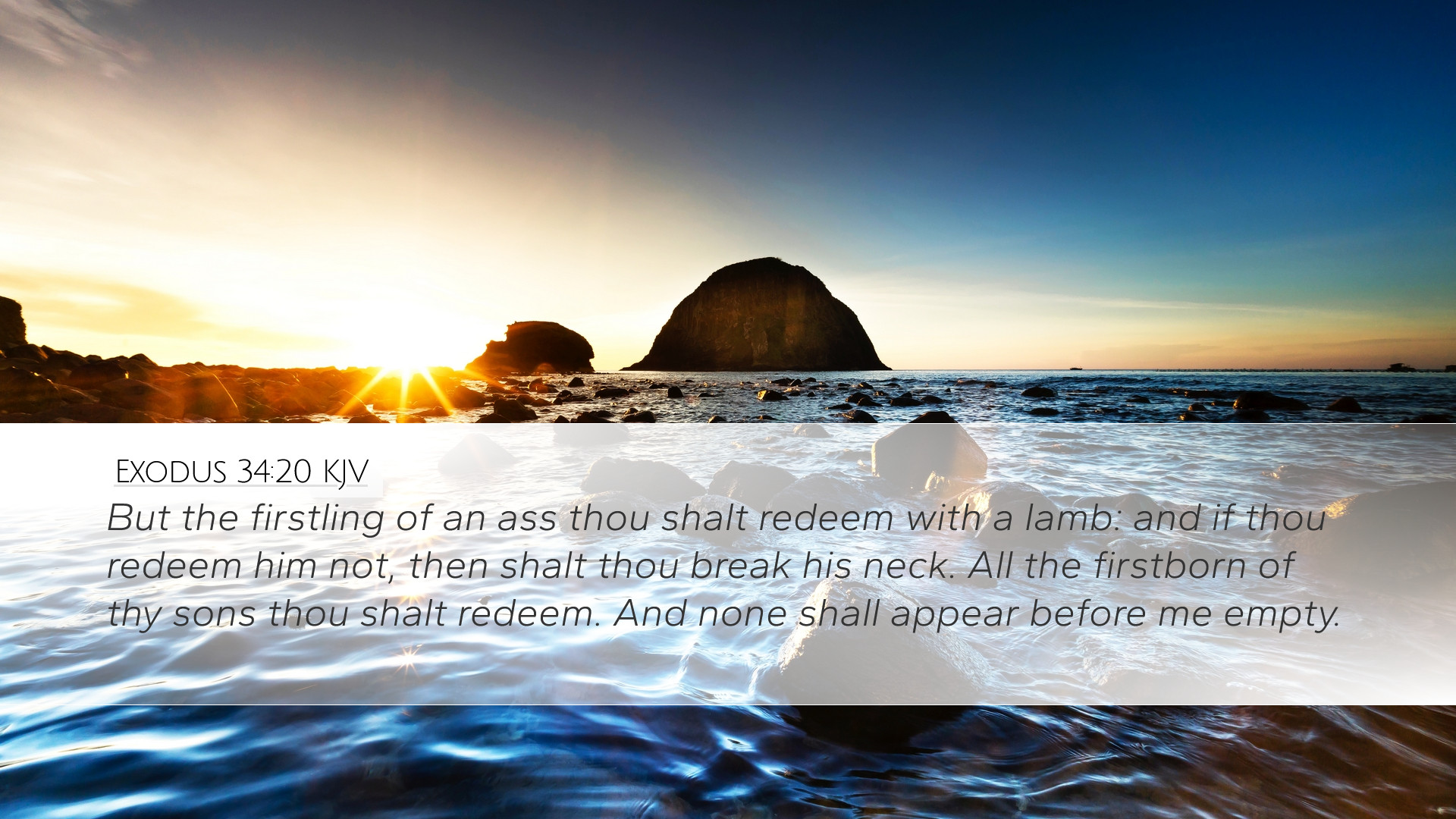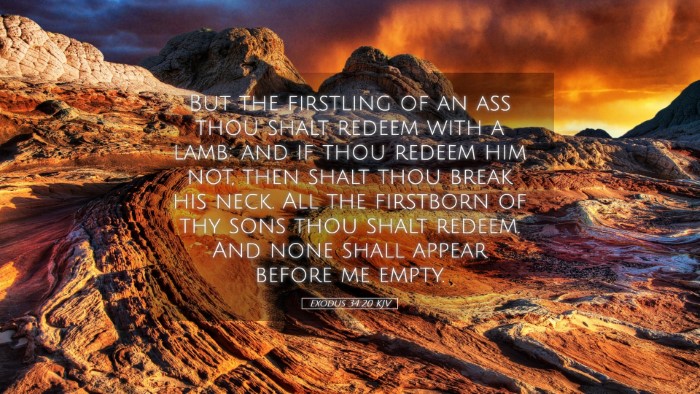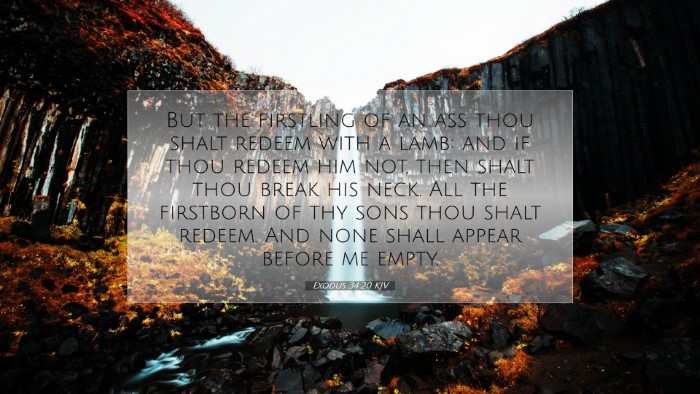Exodus 34:20 Commentary
Exodus 34:20 states: "And the firstling of an ass thou shalt redeem with a lamb: and if thou redeem him not, then shalt thou break his neck. All the firstborn of thy sons thou shalt redeem. And none shall appear before me empty."
Context and Importance
This verse is situated within the broader framework of God's covenant with Israel, particularly concerning the sanctity of the firstborn. In biblical tradition, the firstborn holds a special status, often symbolizing the fullness and strength of the family. As we delve into the exegetical insights from notable commentaries, we will observe the theological and practical implications of this commandment.
Exegesis and Insights
Matthew Henry's Commentary
Matthew Henry emphasizes the significance of redeeming the firstborn as a deep-rooted spiritual principle. He notes that the firstborn represents the best of a family and should be consecrated to God. In his view, this redemption process provides a tangible reminder of God’s deliverance of Israel from Egypt—an act that spared the firstborn of the Israelites while striking down that of the Egyptians.
- Redemption of the Firstborn: Henry argues that redeeming the firstborn serves not only as an acknowledgment of God’s supremacy but also incorporates the value of substitution. The lamb symbolizes Christ, setting a precedent for His ultimate sacrifice.
- Breaking the Neck: The harshness of breaking the neck of an unredeemed ass is construed by Henry as an imperative reflection on the seriousness of neglecting God’s commands. This dramatic action signifies a forfeiture of the animal’s life, indicating the gravity of disobedience.
Albert Barnes' Commentary
Albert Barnes provides a more practical exposition, highlighting the importance of this law in the lives of the Israelites as a reminder of their covenant relationship with God. He elaborates on the cultural context of the firstborn and its significance:
- Symbol of Leadership: Barnes explains that the firstborn stood as a representative of the family, often inheriting the leadership role. Thus, redeeming them symbolizes the family's dedication and submission to God's sovereignty.
- Universal Application: The command to not appear before God empty is a central theme that Barnes illustrates through various biblical examples. He correlates this with the necessity of offering something of value when approaching God, a principle that transcends cultural boundaries.
Adam Clarke's Commentary
Adam Clarke offers insightful interpretations, connecting the mandates found in Exodus 34:20 with broader theological concepts. Clarke’s analysis can be summarized through the following themes:
- God’s Ownership: Clarke points out that the requirement to redeem the firstling signifies God's ownership over all creation. This law constantly reminds the Israelites that they are stewards of what has been entrusted to them.
- Reinforcement of Faith: By redeeming the firstborn and presenting offerings, the Israelites were affirming their faith in God’s provision for their needs. Clarke sees this as a practice that fosters reliance on divine support amidst life's uncertainties.
Theological Implications
From a theological perspective, Exodus 34:20 encapsulates several core doctrines, including:
- Redemption: The verse underscores the theme of redemption, a cornerstone of both Old and New Testament theology. The lamb as a substitute prefigures Christ's redemptive work.
- Covenantal Relationship: The emphasis on God’s requirements demonstrates the notion of covenant—a mutual agreement where blessings are contingent upon obedience.
- Preparation for Worship: The directive that none shall appear empty highlights the importance of preparation in worship. It signifies that approaching God requires an offering from the heart.
Conclusion
In conclusion, Exodus 34:20 invites deep reflection on how God's commands relate to the larger narrative of sacrifice, redemption, and worship. By acknowledging their obligations and the significance attached to the firstborn, the Israelites were called to remember their deliverance and dependence on God. This passage serves as a rich source for pastors, students, and scholars who seek to understand the interplay between law, grace, and worship in the broader biblical context.


